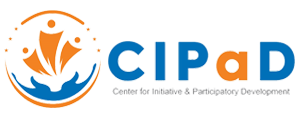Health
What We Do
Health
Health is at the heart of so much of the world’s poverty and suffering. When communities don’t have enough food, when they depend on unsafe water sources, when they don’t have access to reliable health support, every life suffers. Good health and nutrition empower children, family and communities. Good health is transformation. We want to see better access to good health and nutrition.
Finding sustainable ways to improve access to nutrition, clean water, and health resources can be the difference between life and death for the men, women, and children you help us serve around the world every day.
At CIPaD, we want to promote good hygiene, nutrition and good health for all. We want to strengthen health systems and train health workers to serve vulnerable people.
Maternal, New-Born, And Child Health
In every two minutes, more than 30 children under the age of five die globally. Most of them will succumb to preventable causes, such as diarrhoea, pneumonia, childbirth complications and malaria.
CIPaD works predominantly in the communities hardest hit by injustices, recognizing that the health of the mother and the child cannot be separated. Providing new-borns with optimal nutrition and the access to essential care ensures a healthy start in life. Maternal health is the most critical determinant of neonatal outcome, and a healthy new-born is the best promise for the future.
Diseases
HIV and AIDS
The UNAIDS 2016–2021 Strategy is a bold call to action to get on the Fast-Track to end the AIDS epidemic by 2030 and reach people being left behind. It is a call to reach the 90–90–90 treatment targets, to close the testing gap and to protect the health of the 22 million people living with HIV who are still not accessing treatment. It is a call to redress the deplorably low treatment coverage for children living with HIV. A new 2021-2030 UNAIDS Strategy is currently under development, with updated HIV targets and estimates of resources needed.
Tuberculosis (TB)
Tuberculosis (TB) is a treatable and curable disease, but remains the world’s biggest infectious killer, with 1.4 million people dying of TB in 2019. TB is the leading killer of people living with HIV, causing one in three deaths. CIPaD is committed to working with partners in treating and identifying TB in the communities where we work.
Malaria
Communities that are most vulnerable – including children under five years old, pregnant women and those already affected by HIV and AIDS – are more susceptible to malaria. In areas where malaria is an issue, we work to assure that families – especially mothers and children under age 5 – to sleep under a long-lasting insecticide treated bed net. We also work to strengthen health systems to make sure families have access to proper diagnosis, treatment and care.
Sexual And Reproductive Health
Good sexual and reproductive health is a state of complete physical, mental and social well-being in all matters relating to the reproductive system. It implies that people can have a satisfying and safe sex life, the capability to reproduce and the freedom to decide if, when, and how often to do so. To maintain one’s sexual and reproductive health, people need access to accurate information and the safe, effective, affordable and acceptable contraception method of their choice. They must be informed and empowered to protect themselves from sexually transmitted infections. We have been dedicated to improving the sexual and reproductive lives of women, children, and families through research, public health education, and partnerships. Our activities and programs provide support to individuals organizations, institutions and communities in our project area.
Neglected Tropical Diseases
The neglected tropical diseases (NTDs) are a group of infections that put over a billion people at risk around the world. These include soil-transmitted helminths, schistosomiasis, trachoma, lymphatic filariasis, and river blindness. WASH contributes to the prevention and the management of most NTDs through the provision of safe water, the construction of sanitation facilities and hygiene behaviour change. Reducing levels of WASH-preventable NTDs not only improves health and alleviates suffering but can also leads to improved educational outcomes for children and increased economic progress for communities and nations. Safe water available for personal hygiene and environmental sanitation reduces guinea worm diseases and soil transmitted helminthiasis, schistosomiasis, trachoma, and lymphatic filariasis. Reduced open defecation impacts soil transmitted helminthiasis as well.
Did you know?
Our health can be affected by almost all aspects of our lives.
Here are just some of the ways that you’re helping to build healthier lives for those we serve:
- Improving access to safe water sources
- Providing hygiene and sanitation solutions
- Helping families access nourishing food
- Supporting pregnant women and mothers with maternal and infant health and nutrition
- Training community health workers and supplying transport solutions
- Psychosocial support
